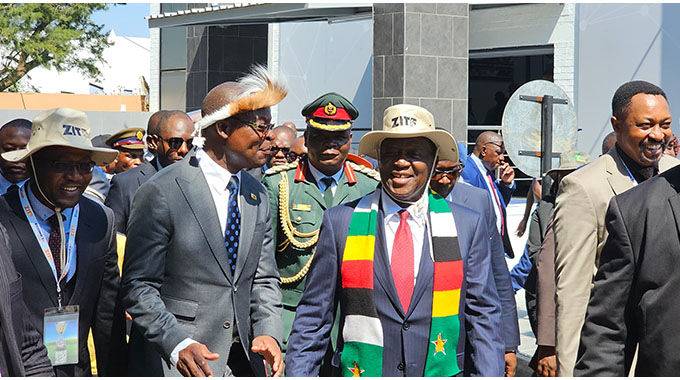President swears in anti-graft commission
Felex Share Harare Bureau
PRESIDENT Robert Mugabe yesterday swore in members of the Zimbabwe Anti-Corruption Commission (ZACC) as the country steps up the fight against graft.
This comes as the Office of the President and Cabinet has reclaimed the administration of the anti-graft body from the Ministry of Home Affairs to stop interference in its operations.
The President also swore in members of the National Peace and Reconciliation Commission at a ceremony held at State House in Harare.
Also to take oath to become a member of Cabinet was the Minister of State for Liaising on Psychomotor Activities in Education Cde Josiah Hungwe.
Cde Hungwe has not been sitting in Cabinet since his appointment as a Minister in 2013.
The new ZACC chairperson is Job Whabira, a former permanent secretary in the ministries of Home Affairs and Defence.
Other members of the commission are: Nanette Silukhuni, Goodson Nguni, Christine Fundira, Denford Chirindo, Cathy Muchechetere, Farai Mashonganyika and Boyana Ndou.
The appointments were done in terms of Section 254 of the Constitution.
ZACC has been operating without commissioners for close to three years and in most cases whistleblowers were turned away and referred to the police.
Deputy Chief Secretary to the President and Cabinet Ray Ndhlukula said the reclaiming of ZACC by President Mugabe was to ensure there was a robust fight against graft. “During the inclusive government, there were two co-Ministers of Home Affairs and as a compromise, the agreement was that ZACC be under that Ministry,” he said.
“Now that the Government of National Unity is over and because of the need to put it centrally, it’s now under the President’s Office.”
The anti-corruption body is expected to investigate and expose cases of corruption in the public and private sectors, to combat corruption, theft, misappropriation, abuse of power and other improper conduct and to promote honesty, financial discipline and transparency in the public and private sectors.
It is also expected to receive and consider complaints from the public and to take such action in regard to the complaints as it considers appropriate; to direct the Commissioner-General of Police to investigate cases of suspected corruption and to report to the commission on the results of any such investigation; to refer matters to the National Prosecuting Authority for prosecution and to make recommendations to the government and other persons on measures to enhance integrity and accountability and prevent improper conduct in the public and private sectors.
The eight-member National Peace and Reconciliation Commission will be headed by former speaker of Parliament Cyril Ndebele.
Commissioners are Lilian Chigwedere, Patience Chiradza, Choice Ndoro, Charles Masunungure, Geoffrey Chada, Leslie Ncube and Godfrey Chekenyere.
According to the Constitution, the functions of the commission are to ensure post-conflict justice, healing and reconciliation, develop programmes to promote national healing, unity and peaceful conflict resolution.
It is also expected to bring about national reconciliation by encouraging people to tell the truth about the past and facilitating the making of amends and provision of justice.







Comments